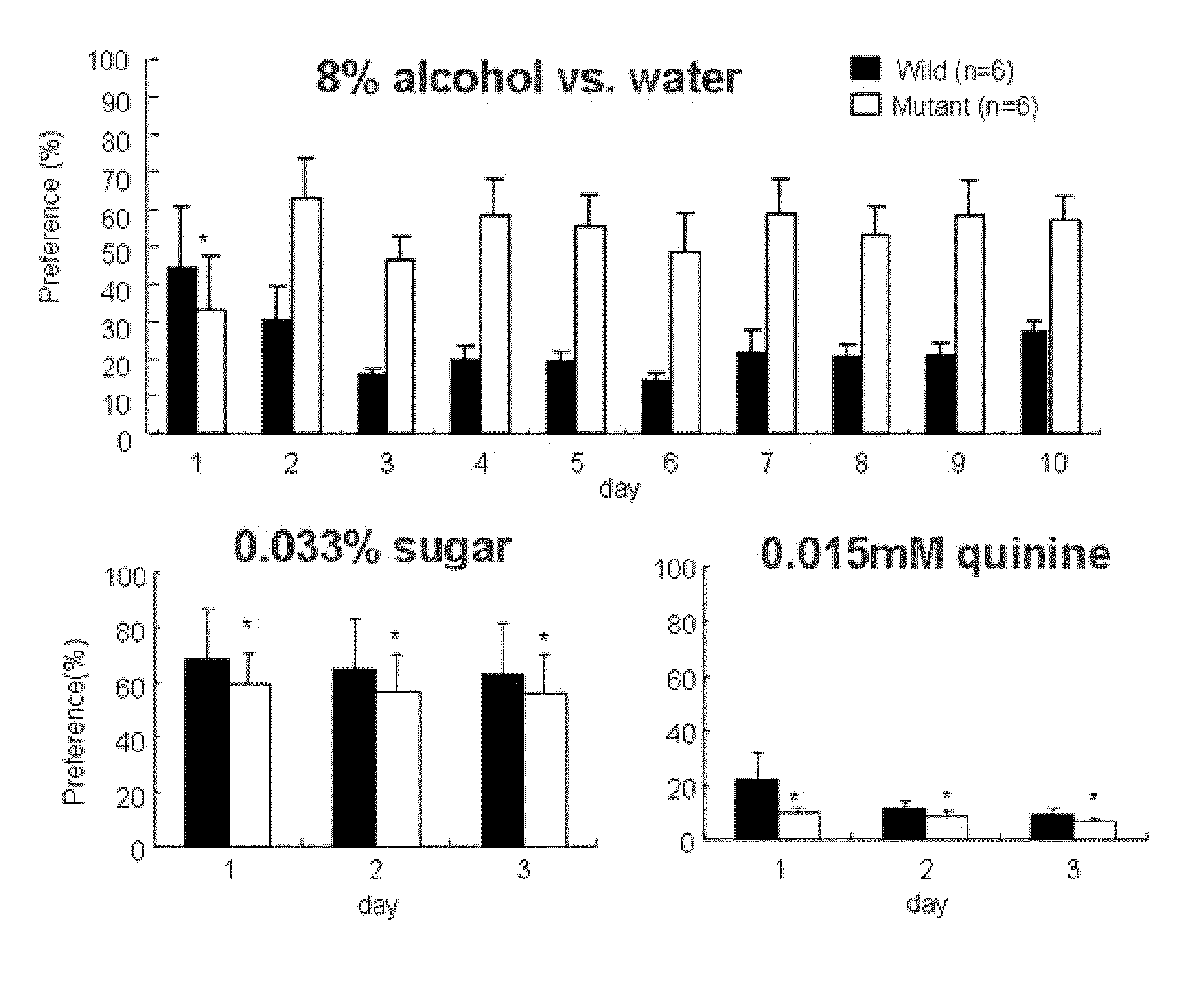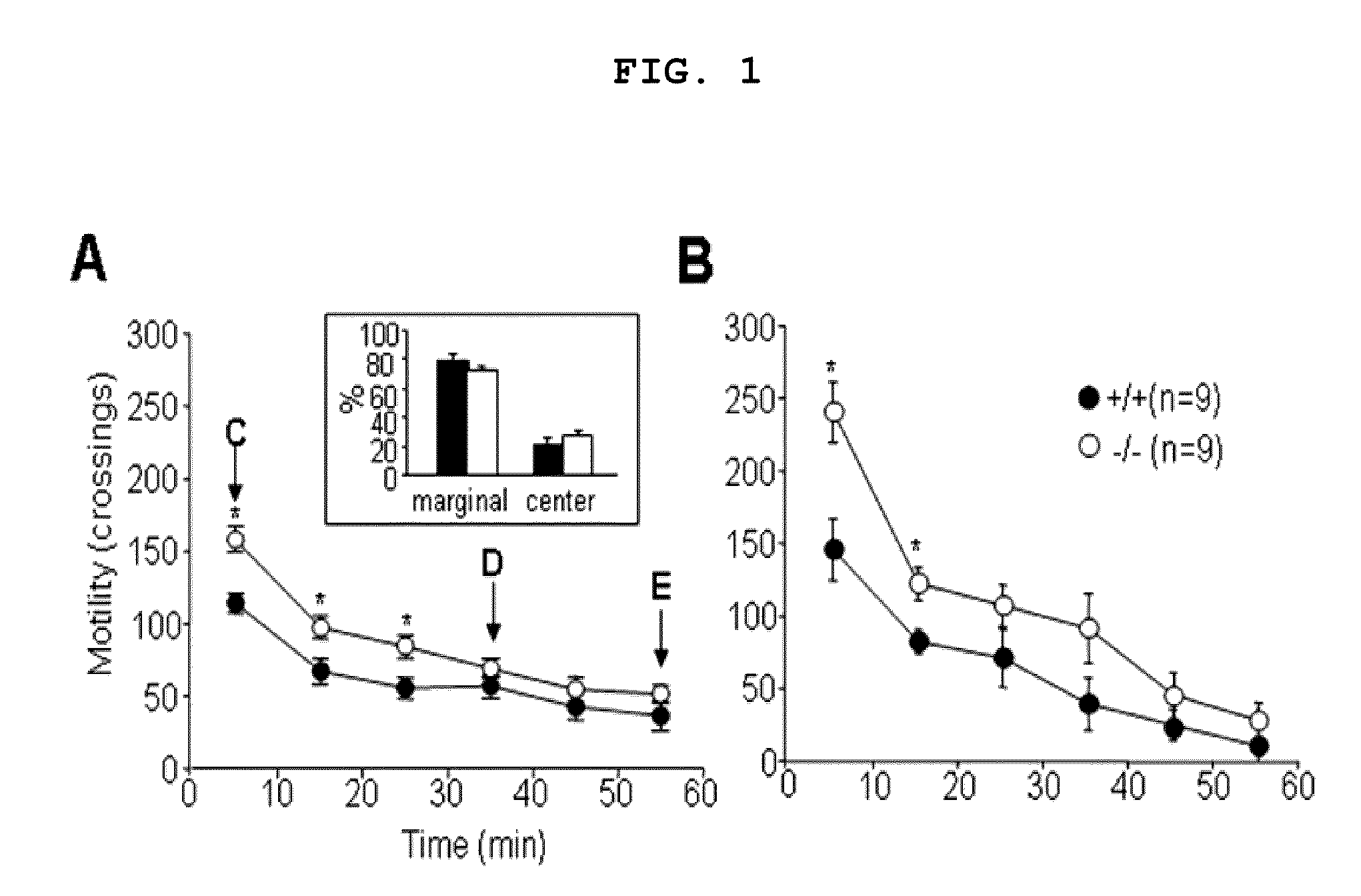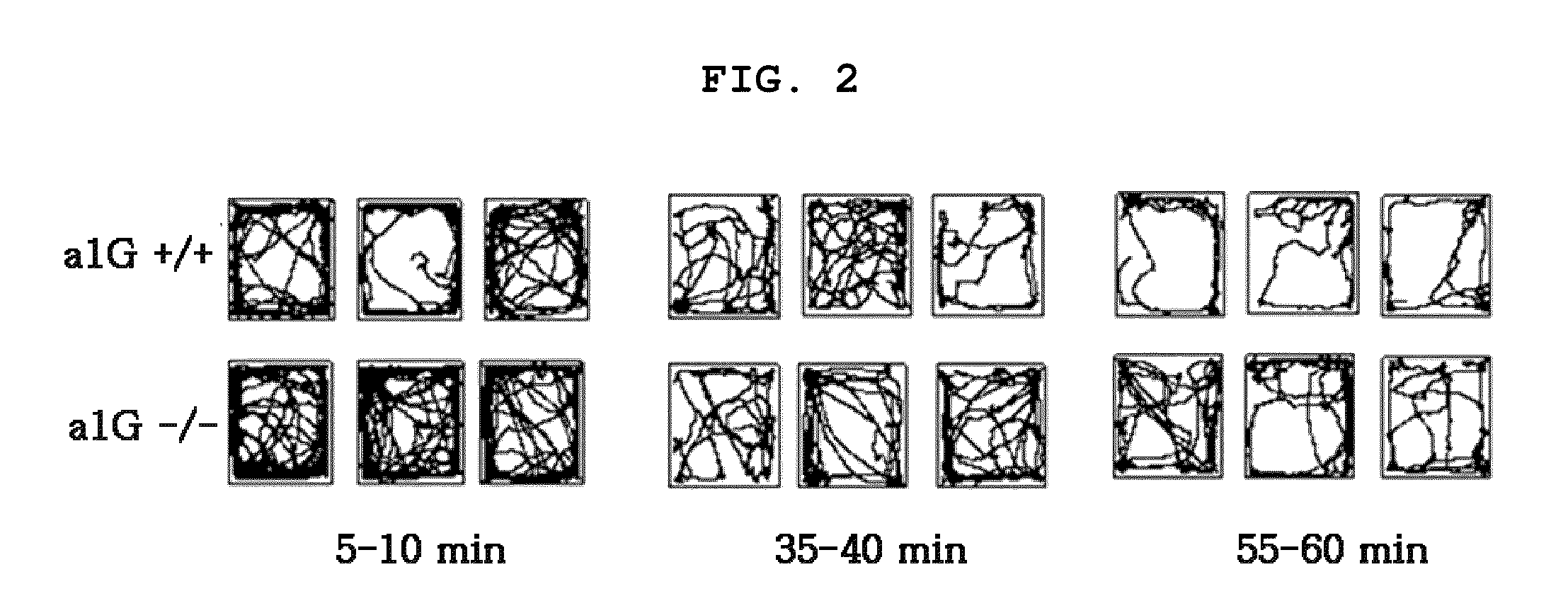Mice lacking alpha 1g showing enhanced novelty-seeking and alcohol preference and therapeutic methods for mood disorders by modulating alpha 1g t-type calcium channels
a technology of t-type calcium channel and mouse, which is applied in the field of 1 g t-type calcium channel transgenic mouse as a nervous disease model, can solve the problems of undiscovered physiological or genetic mechanisms involved in such behavior, and the effect of lacking 1g t-type calcium channel on the behavior of an individual has not been explained
- Summary
- Abstract
- Description
- Claims
- Application Information
AI Technical Summary
Benefits of technology
Problems solved by technology
Method used
Image
Examples
example 1
Generation of Transgenic Mice Deficient in α1G T-Type Calcium Channel (α1G− / −)
Construction of a Targeting Vector
[0085]In order to prepare transgenic mice deficient in a part or some parts of α1G gene of T-type calcium channel, the present inventors referred to the report “TRANSGENIC MOUSE WITH DISRUPTED CALCIUM ION CHANNEL ALPHA 1D GENE AND PRODUCTION METHOD THEREOF” (Korea Application No: 10-2001-0028803) applied for a patent by the present inventors on May 25, 2001.
[0086]Particularly, a mouse cDNA of the α1G gene (cacna1G) sequence corresponding to 688-1008 bp of the rat cDNA was isolated by RT-PCR. Using the above isolated sequence as a probe, a bacteriophage lambda FIX II library (Stratagene) wherein DNA fragments of 129 / svJae mouse genome were inserted randomly was screened. From this, the genomic phage clone containing α1G gene was selected and confirmed by restriction mapping, Southern blotting, and sequencing.
[0087]The targeting vector was designed to delete most of the exo...
example 2
Investigation of Behavioral Changes of Transgenic Mice Deficient in α1G T-Type Calcium Channel
Investigation of Reactivity to a New Environment
[0094]In order to investigate reactivity to a new environment and a strange subject of α1G calcium channel transgenic mice, the present inventors transferred them to a breeding cage and an open field to observe their behavioral changes.
[0095]First, for the analysis of behavioral aspect of a transgenic mouse in a new breeding cage, each mouse was raised dependently in a cage for 24 hours. Then, the mouse was transferred to a new cage and its behavior was recorded for 1 hour by DDC camera. A person who was not informed about its genotype observed the behavior by the recorded tape.
[0096]For reactivity test in an open field, a test animal was transferred to a test room one hour before the test began and each animal was put in an independent breeding cage for adaptation. The floor of the open field (white acryl, 50×50×50 cm) was covered with 0.5 c...
example 3
Methods of Screening for Compounds for Inhibiting Novelty Seeking Behavior or Alcoholism
[0118]The α1G− / − mice described herein are used to identify compounds that could be used to inhibit novelty seeking behavior or for treating alcoholism.
[0119]Candidate or test compounds are administered to α1G mice (including wild type, α1G+ / −, and / or α1G− / − mice) and the behavior of the mice in tests of novelty seeking behavior (such as reactivity to a new environment or reactivity to a new subject) or alcohol preference are tested. A candidate compound is identified as a compound that inhibits novelty seeking behavior or alcoholism if the compound decreases the behavior of treated mice as compared to untreated mice. In particular, a candidate compound is identified as a compound that inhibits novelty seeking behavior or alcoholism if it decreases the behavior of α1G− / − mice treated with the compound as compared to untreated α1G− / − mice.
[0120]The α1G mice are treated with one or more test compou...
PUM
| Property | Measurement | Unit |
|---|---|---|
| Mass | aaaaa | aaaaa |
Abstract
Description
Claims
Application Information
 Login to View More
Login to View More - R&D
- Intellectual Property
- Life Sciences
- Materials
- Tech Scout
- Unparalleled Data Quality
- Higher Quality Content
- 60% Fewer Hallucinations
Browse by: Latest US Patents, China's latest patents, Technical Efficacy Thesaurus, Application Domain, Technology Topic, Popular Technical Reports.
© 2025 PatSnap. All rights reserved.Legal|Privacy policy|Modern Slavery Act Transparency Statement|Sitemap|About US| Contact US: help@patsnap.com



